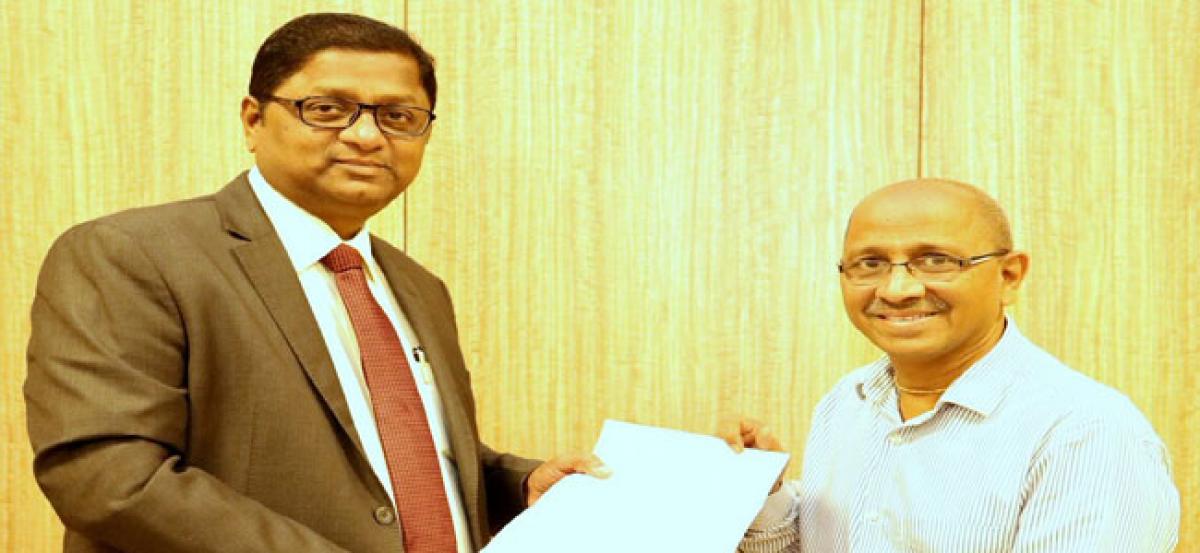vikram sarabhai
-m.hari Prasad
about the author

- Author: Dr. Hari Prasad
- Experienced academician specializing in English Language Teaching and Computational Linguistics.
- Published extensively in the field and produced textbooks for schools and colleges in Andhra Pradesh.
- Currently serves as Professor and Head of the Department of Computational Linguistics at The English and Foreign Language University, Hyderabad.
- Dr. Hari Prasad's expertise lies in English language teaching and computational linguistics.
- He has a significant background in textbook writing for educational institutions in Andhra Pradesh.
about vikram sarabhai
- Vikram Sarabhai: Indian scientist and visionary.
- Known as the father of the Indian space program.
- Founded the Indian Space Research Organisation (ISRO) in 1969.
- Pioneered the establishment of various space research and satellite communication initiatives in India.
- Instrumental in the development of India's first satellite, Aryabhata, launched in 1975.
- Played a key role in shaping India's scientific and technological advancements.
Educational Background
- Attended Gujarat College in Ahmedabad for undergraduate studies.
- Pursued higher education at Cambridge University in the United Kingdom.
- Earned a Tripos in Natural Sciences during his time at Cambridge.
- Completed his doctorate at Cambridge in 1947.
- Vikram Sarabhai's educational journey showcased his early promise and commitment to academia.
- His undergraduate studies at Gujarat College provided a foundational education.
Return to India
- Sarabhai returned to India after completing his education abroad, driven by a vision of leveraging science and technology for national development.
- He was profoundly influenced by the belief that scientific innovation could effectively tackle societal issues.
- Upon his return, Sarabhai sought to establish a robust framework for scientific research and development in India.
- He played a pivotal role in founding various institutions and initiatives aimed at promoting scientific education and research.
- Sarabhai's leadership and dedication laid the foundation for India's advancement in science and technology.
Founding INCOSPAR
- In 1962, Vikram Sarabhai established the Indian National Committee for Space Research (INCOSPAR).
- INCOSPAR served as the precursor to the Indian Space Research Organisation (ISRO).
- Sarabhai assumed the role of chairman of INCOSPAR.
- He spearheaded efforts to utilize space technology for the advancement of India.
- The founding of INCOSPAR marked the official beginning of India's space program under Sarabhai's leadership.
Thumba Equatorial Rocket Launching Station (TERLS)
- Vikram Sarabhai led the establishment of the Thumba Equatorial Rocket Launching Station (TERLS) in Thiruvananthapuram in 1962.
- TERLS served as a pivotal facility for India's initial experiments with sounding rockets and space research.
- The station's location near the equator provided strategic advantages for launching rockets into space.
- TERLS played a crucial role in India's early endeavors to explore space and conduct scientific research.
- Sarabhai's vision and leadership were instrumental in the development and operation of TERLS, laying the groundwork for India's achievements in space exploration.
Space Applications and Satellite Launch Vehicles
- Vikram Sarabhai envisioned the practical applications of space technology for societal benefits.
- He played a key role in establishing the Indian National Satellite System (INSAT).
- INSAT revolutionized communication, broadcasting, meteorology, and disaster management in India.
- Sarabhai initiated the development of indigenous satellite launch vehicles to bolster India's space capabilities.
- His foresight and leadership laid the foundation for India's advancements in space applications and satellite launch technology.
summary
Vikram Sarabhai was an eminent Indian scientist widely regarded as the father of the Indian space program. He played a pivotal role in establishing the Indian Space Research Organisation (ISRO) in 1969 and served as its first chairman. Sarabhai's vision and leadership laid the foundation for India's achievements in space technology and satellite communications.
M. Hari Prasad is a name that doesn't immediately ring a bell. If you meant to ask about any connection between Vikram Sarabhai and M. Hari Prasad, I'm not aware of any significant association between them. Sarabhai's contributions mainly revolve around space science and technology, while M. Hari Prasad could be a separate individual or connected to a different field altogether. Could you provide more context or clarify your question?
video(tamil)
Video-Reference:Science With Sam - அறிவியல் அறிவோம் !
video(English)
Video-Benita Samuel(Eng-Dep-Shift 2)

